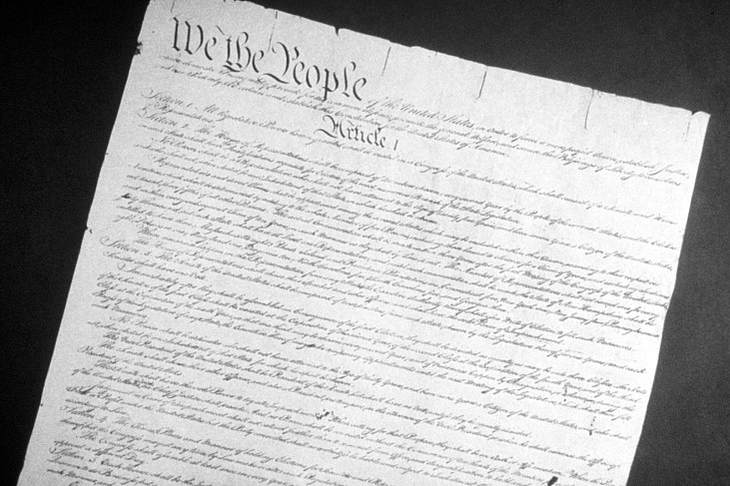Shock Poll: Majority of Americans Support Online Censorship
The Pew Research Center released the results of a poll on free speech and censorship Thursday, and the numbers are terrifying: 55 percent of U.S. adults think the federal government should restrict false information on the internet. What’s even more surprising is how quickly attitudes are changing—in an identical poll in 2018, only 39 percent of respondents expressed such views.
Not surprisingly, Democrats are far more supportive of censorship than Republicans, with an eye-opening 70 percent agreeing with the statement, “U.S. govt. should take steps to restrict false information online, even if it limits freedom of information.” Only 40 percent of Dems supported that statement in 2018, which shows you just how radically the party has changed in recent years.
Author Alex Berenson wrote in his Substack Saturday:
The poll had almost no good news.
Younger adults favored free speech slightly more than those over 50, but they have shifted against it even faster than older adults in the last five years, probably because they tend to lean to the left.
The poll did not examine the reasons why views have shifted so far so fast. But presumably endless alarmism about the dangers of “misinformation” and “disinformation” by left-leaning media outlets has been a huge factor.
Berenson is all too familiar with censorship—he was banned from Twitter during the COVID pandemic because he questioned many of the government’s responses and was especially critical of the mRNA vaccines. He was only re-instated after Elon Musk took over.
Since then, we have learned that the Biden administration undertook a systematic campaign to get him censored on social media. This is what so many Americans are apparently supportive of? I don’t know of a single fact that Berenson got wrong (excluding the occasional mistake he corrected), but the censorship was not about the facts—it was about the narrative, which didn’t fit the Biden-Fauci line.
Two institutions that should be fighting for free speech the hardest, Congress and the press, are actually doing the opposite lately. Democrats in the House ludicrously tried to censor Democratic presidential candidate RJK Jr.—in a hearing about government censorship. You can’t make this stuff up.
The New York Times may be a far-left outfit, but unfortunately, it still wields enormous influence. Here’s the garbage they wrote in discussing the RFK appearance:
Despite the theater, the hearing raised thorny questions about free speech in a democratic society: Is misinformation protected by the First Amendment? When is it appropriate for the federal government to seek to tamp down the spread of falsehoods?
Answer: it is almost never appropriate for the government to police people’s opinions. The other problem with this line of thinking was exposed during the pandemic—who gets to define what is misinformation? As we discovered, the administration pressured social media companies to censor anything they didn’t like, information that later often turned out to be true. Meanwhile, the CDC, Fauci, and Biden spread so many false “facts” that it became almost impossible to keep up with them.
So who’s the arbiter, the Orwellian-sounding “Disinformation Governance Board?” Luckily that terrible idea died a quick death before it even really got off the ground, but will they just bring it back with a less-scary name?
As Berenson wrote, the poll has almost no good news. It does remind us again, however, that we must keep fighting to protect free speech in this country.
Many, many people were censored during the pandemic, and RedState was hit hard by the Big Tech COVID fact-checkers. Consider supporting independent journalism by joining our VIP program. We get to say what we want behind the paywall, and the censors can’t get to us. If you’re not already part of our VIP member family, consider joining us today. Sign up, join the community, and get access to everything we offer—including exclusive articles and videos and access to our raucous commenting sections.





Post a Comment